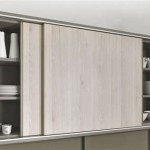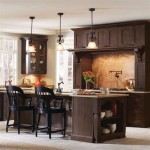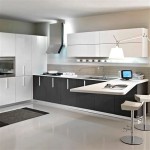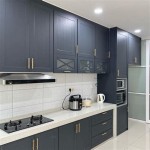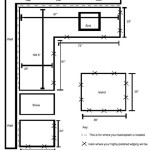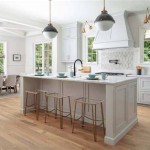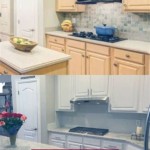Essential Aspects of Upper Kitchen Cabinet Ideas
Upper kitchen cabinets play a crucial role in enhancing both the functionality and aesthetics of your kitchen. Choosing the right cabinets can transform the look and feel of your space, while also providing ample storage and organization. Here are some essential aspects to consider when designing your upper kitchen cabinets:
1. Cabinet Style
The style of your upper kitchen cabinets should complement the overall design of your kitchen. Consider your preferred cabinetry style, such as traditional, modern, shaker, or farmhouse. Each style has its unique characteristics and finishes, so choose one that aligns with your aesthetic preferences.
2. Cabinet Height
The height of your upper kitchen cabinets will depend on the height of your ceiling and the desired functionality. Standard cabinet heights range from 30 to 42 inches, but you can customize the height to accommodate your needs. Higher cabinets provide more storage space, while shorter cabinets can create a more open and airy feel.
3. Cabinet Depth
The depth of your upper kitchen cabinets is typically 12 inches, but you can opt for deeper cabinets to accommodate larger items. Deeper cabinets provide more storage capacity, but they can also make the kitchen feel smaller. Consider the size of your kitchen and your storage needs when determining the ideal cabinet depth.
4. Cabinet Material
Upper kitchen cabinets can be made from various materials, including wood, laminate, and thermofoil. Wood cabinets offer a classic and durable option, while laminate cabinets are more budget-friendly and come in a wide range of colors and finishes. Thermofoil cabinets are a cost-effective alternative to wood and offer a smooth, seamless finish.
5. Cabinet Hardware
Cabinet hardware serves both functional and aesthetic purposes. Choose hardware that complements the style of your cabinets and enhances the overall look of the kitchen. Consider knobs, pulls, or handles in different materials, such as metal, wood, or ceramic.
6. Cabinet Lighting
Proper lighting can illuminate your upper kitchen cabinets, making it easier to find items and create a more inviting atmosphere. Consider under-cabinet lighting to brighten the work surface or recessed lighting to highlight the cabinetry and provide ambient light.
7. Cabinet Organization
Maximizing storage space in your upper kitchen cabinets is crucial. Utilize drawer dividers, pull-out shelves, and other organizational accessories to keep items tidy and easily accessible. Consider the items you store most frequently and design the cabinet interiors accordingly.
Conclusion
Designing the perfect upper kitchen cabinets involves careful consideration of various aspects, from style and height to material and organization. By thoughtfully addressing these essential elements, you can create a kitchen that not only meets your functional needs but also enhances the beauty and comfort of your home.

Pin On Home Sweet

14 Ideas For Decorating Space Above Kitchen Cabinets How To Design Spot

Project Spotlight Renovated Galley Style Kitchen In A Historic Home Remodel Layout New Cabinets

Update Your Kitchen On A Budget Cabinets Decor Decorating Above

How To Decide Between Upper Kitchen Cabinets Open Storage And More

10 Simple Ideas To Update Your Kitchen Cabinets Jenna Sue Design

9 Ways To Efficient Stylish Kitchen Cabinet Designs
:strip_icc()/121035540_331772381251072_3717720175166945340_n-ae336a3237ca44c6bdddd093c7d1eb97.jpg?strip=all)
21 Kitchen Cabinet Organization Ideas You Need To Try
:strip_icc()/101140874-1ceefb4d08fd4430b4c95c22a856084d.jpg?strip=all)
23 Stylish Ideas For Kitchen Cabinet Doors

8 Upper Corner Cabinet Solutions Ideas Kitchen
Related Posts

